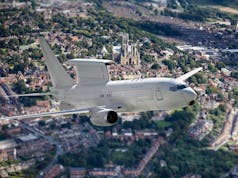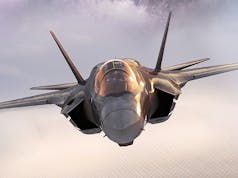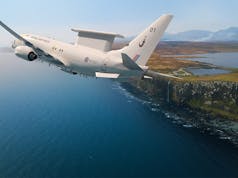A Paveway IV eliminated an Islamic State light machine-gun team, whilst a truck-bomb was destroyed with a Brimstone missile.
According to the Ministry of Defence, Brimstone-armed Tornados successfully attacked three terrorist positions in Mosul, whilst a Paveway IV from a Typhoon accounted for a fourth. Mixed pairs of Tornados and Typhoons struck four Islamic State positions in Mosul on Monday 29 May, including two defended with heavy machine-guns and rocket-propelled grenades, as well as demolishing a large road block built by the terrorists.
According to a Ministry of Defence press statement:
“The RAF is continuing to support Iraqi forces in their effort to liberate western Mosul. While the operating environment in the city is very challenging, particularly given the closely-packed buildings, very narrow streets, and the density of the urban population, our aircrew have continued to deliver precision strikes in close support of Iraqi troops on the ground.
Daesh’s current tactics, including the illegal use of civilians as human shields, and fighting from sites such as schools, hospitals, religious sites and civilian neighbourhoods, increases the risk to innocent life. While no military operations come without risk, particularly in dense urban environments and against such inhuman Daesh tactics, the RAF continues to take all steps necessary to minimise civilian casualties.”
What is the current status of the air campaign?
In December 2016, it was reported that the Royal Air Force is operating at its most intense for 25 years in a single theatre of operation which far outstripped the UK involvement in Iraq and Afghanistan – RAF jets have dropped 11 times more bombs (1,276 strikes) on Syria and Iraq in the preceding 12 months than they had in the busiest year of action in Afghanistan a decade previously.
The cost of the operations against Islamic State and other details of the campaign were revealed in a briefing paper. In March 2015 the MoD confirmed that the net additional costs of the military air operation would be met from the Treasury Special Reserve; while the costs of training and equipping the Iraqi and Kurdish security forces, and the provision of key enablers, would be met from the MOD’s Deployed Military Activity Pool (DMAP).
In answer to a parliamentary question in September 2016 the MoD set the costs of the operation, between August 2014 and the 31st of March 2016, at £265 million (£45 million in the 2014-15 financial year, and £220 million in the 2015-16 financial year).













A Paveway for a machine gun
A Brimstone for a truckbomb
Bit over the top dont you think
How much did that cost ?
Surly there must be cheaper ways to hit small targets such as theses
Yes there are, but they all involve boots on the ground and the risk of our troops being killed, or worse still..captured.
Whatever the cost of dropping Paveways & Brimstones is, it’s worth avoiding the above and cheap at twice the price.
Yeah I honestly struggle to see how there isn’t a cheaper just as safe / and indeed quicker method of dealing with these – how about an javelin or nlaw ?
Exactly, not only would they be effective but it would also increase the local forces ability to look after themselves and therefore reducing their reliance on us.
What a goddamn waste of money & air-frame hours!
These are pin pricks on the hide of an ox.
Completely pointless other than for the politicians to look tough.